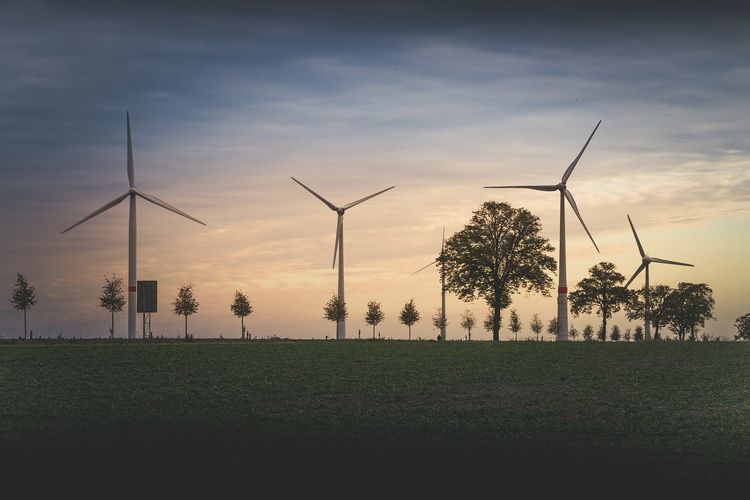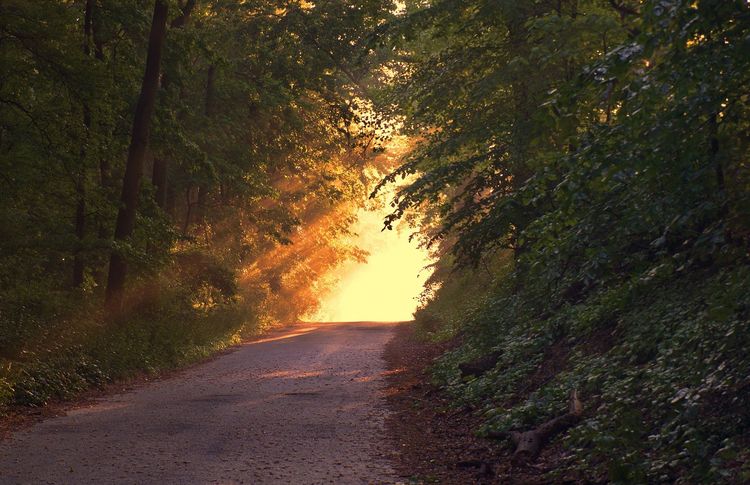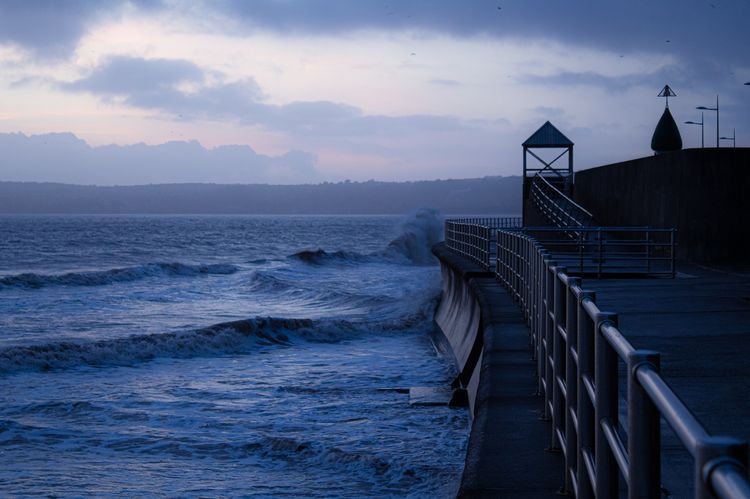Research
The Climate Newsletter provides brief information about the latest activities of the university in the field of climate protection and sustainability. It is published at irregular intervals. Please register to stay up to date.
Research
Research at the University of Oldenburg in the field of environment and sustainability focuses on biodiversity and marine sciences, energy of the future and sustainability. Cross-cutting areas of sustainability research are primarily focussed on coastal areas, climate and society, human-nature-technology interactions and the cross-sectional area of integrative system analysis and transdisciplinary design.
Sustainability-related institutes and centres
TRUST

TRUST@UOL is a cross-faculty and integrative scientific centre that strengthens the university's focus on sustainability and increases its national and international visibility. The centre focuses on interdisciplinary and transdisciplinary cooperation. Anchored in university processes, the centre integrates activities in the areas of research, teaching and transfer. At the same time, this will strengthen the University of Oldenburg's contribution to a sustainable transformation of society.
ICBM
The Institute of Chemistry and Biology of the Marine Environment (ICBM) is an interdisciplinary research institute that deals with fundamental and applied questions of marine and environmental research. The ICBM investigates the significance of marine environmental systems in collaboration with working groups from various scientific disciplines (chemistry, biology, physics, modelling). The focus is on marine material cycles and energy flows in water, in sediments and at interfaces between habitats and water bodies, as well as the functional role of marine biodiversity. One of the ICBM's research focuses is on coastal waters worldwide, as coastal regions are among the most productive and most human-influenced and utilised zones on our planet. The North Sea and the Wadden Sea are of particular interest. The ICBM is also the home institute of the research vessel Sonne and is therefore globally active in the various oceans. The function of marine ecosystems depends on the biological diversity of the oceans. How strongly and in what form this biodiversity reacts to global warming and anthropogenic influences is the central research interest of the Helmholtz Institute for Functional Marine Ecosystems, which was founded in 2017. Helmholtz Institute for Functional Marine Biodiversity (HIFMB), which was founded in 2017.. It aims to gain a better understanding of the effects of fluctuations in biodiversity on the function and performance of marine ecosystems and to develop appropriate nature conservation and management strategies. Together with the Bremerhaven Alfred Wegener Institute and the Helmholtz Centre for Polar and Marine Research (AWI) the ICBM is currently developing and expanding the HIFMB. Modelling, observational and experimental research approaches benefit from modern, high-resolution chemical analysis and our own technological developments in marine sensor technology. To this end, in January 2017 the Centre for Marine Sensor Technology (ZfMarS) began its work with ICBM employees. The centre also focuses on boundary layers. The transition from the sea to the atmosphere is a key area for climate processes. New metrological methods are intended to record the exchange processes at the interfaces and shed light on their role in technical applications as well as in climate research.
ForWind
ForWind is the centre for wind energy research at the universities of Oldenburg, Hanover and Bremen and brings together 30 institutes and working groups. This cross-university co-operation is unique in Germany. The German Aerospace Centre (DLR), the Fraunhofer Institute for Wind Energy Systems (IWES) and ForWind form the joint Wind Energy Research Network (FVWE). Findings from the fundamental questions of wind energy research are transferred to industry in numerous research projects via application-oriented projects. ForWind has a firm place in the national and international research landscape. The scientists work in research projects on the large offshore wind farms in the North Sea and participate as experts in specialised committees.
HIFMB
The HIFMB (Helmholtz Institute for Functional Marine Biodiversity) was founded in 2017 and is an institutional co-operation between the Alfred Wegener Institute in Bremerhaven (AWI), the Helmholtz Centre for Polar and Marine Research and the University of Oldenburg. It researches marine biodiversity and its significance for the function of marine ecosystems. In doing so, it develops the scientific basis for marine nature conservation and ecosystem management. One of the HIFMB's projects is the Polar Sounds initiative, in which artists from all over the world create compositions with sounds from the polar seas. The aim of this innovative project was to raise awareness of anthropogenic impacts on marine ecosystems and to demonstrate the potential of art-science collaborations to promote public engagement and behavioural change. The project calls for consideration of the fragility of our polar ecosystem in the face of the climate crisis. With the Earth's poles warming faster than the global average, this sound collection aims to draw attention to a fascinating, rapidly changing environment and inspire reflection on how it can be preserved for future generations.
IBU
The Institute of Biology and Environmental Sciences (IBU) is an interdisciplinary research institute specialising in biodiversity and evolution, landscape ecology, neuroscience and the didactics of biology. The IBU also includes the Botanical Garden, which primarily serves as a teaching infrastructure for further education in all aspects related to plants. However, it also offers good opportunities for educational events on zoological and environmental science topics. Ultimately, it is also open to other members of the university and other educational organisations that promote the aims of the Botanical Garden. The Botanical Garden is a close co-operation partner
of Oldenburg Touristik und Marketing GmbH and an active member of the Association of Botanical Gardens in Germany. The number of visitors per year is around 70,000.
Example projects
Treasure
In 2023, the research project Treasure (Targeting the REduction of plAStic oUtflow into the noRth sEa) was launched as part of the European Interreg North Sea programme. The aim of the three-year project is to find an effective and lasting solution to the problem of plastic pollution in the North Sea from inland waters, coasts and harbours. This is because plastic waste threatens marine animals, food safety and quality, human health and coastal tourism and contributes to climate change. Treasure runs under the leadership of COAST. In collaboration with the IBU and the ICBM, the aim is to identify, reduce and eliminate plastic discharge into the sea through coordinated exchange. The project also involves 15 partners from regional authorities, water management agencies, knowledge institutes, companies and non-governmental organisations (NGOs) from Germany, the Netherlands, Denmark, Belgium and France. The focus is on an innovative, integrated, cross-sectoral and transnational approach, as the marine environment has no clearly recognisable territorial boundaries and does not adhere to regional and national responsibilities. Practice-orientated solutions for combined topics are developed in five regional living labs: Governance and Policy, Data Collection and Analysis, Prevention and Behaviour Change, Plastic Waste Removal. In addition, various methods are used to collect data on the sources, type and composition of waste. Finally, various waste disposal methods will be tested for their effectiveness under different conditions.
North Sea monitoring research project
One of four research focuses is "Sustainable use for healthy oceans - answers to the challenges of the Anthropocene", which specialises in protecting the oceans. One project under this focus, for example, is the North Sea monitoring project as part of the German Marine Research Alliance (DAM). Prof Dr Peter Schupp and his Environmental Biochemistry working group in Wilhelmshaven are testing new non-invasive monitoring methods for organisms in special protected areas of the Sylt Outer Reef, Borkum Reef Ground and the Dogger Bank in the North Sea. Benthic fishing methods have a disruptive effect on the seabed and thus cause disturbances to the microbial communities. These microbes from marine sediments have essential functions in the food web and thus form the basis of the ecosystem. In parallel to traditional methods such as trawl surveys, baited stereo underwater video stations are used to determine the different species and their size and biomass.





